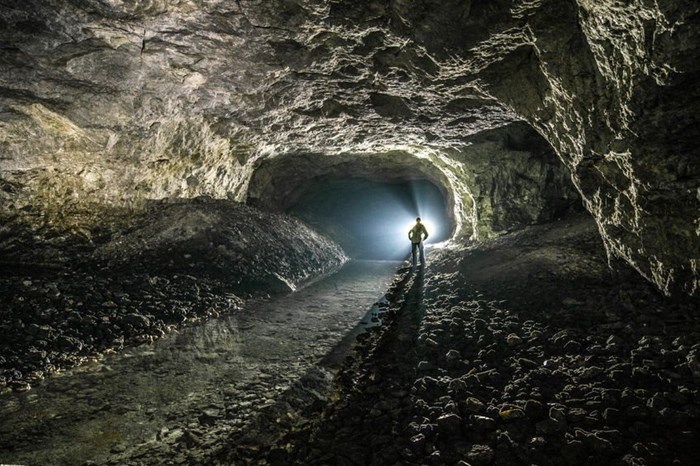Eskom pre-payments to Tegeta enabled by willing agents

Tegeta received preferential treatment when, in late 2015, it was assisted by Eskom officials, and former mineral resources minister Mosebenzi Zwane, to acquire OCM, which supplied coal to the Hendrina power station. Zondo found that the controversial R1.68bn pre-payment, meant to “secure” coal supply, that was approved around the same time, was a ruse. It benefited only Tegeta by bolstering the company’s chances in the transaction, presenting it as a financially fit company that could make the purchase.
Glencore coal interests
Zwane, by strong-arming Glencore into selling OCM to Tegeta in early December 2015, created the impression that he represented the South African government’s interests, Zondo found, when it was merely an act of solidarity with the Guptas, whose capture agenda he supported. He further found that Zwane interfered in Eskom’s operational matters, under the guise of avoiding potential job losses should OCM go under. That threat did not even exist at the time, but was used to push a narrative that Tegeta would rescue at-risk jobs. The former minister’s actions contributed to Glencore’s decision to sell OCM, and paved the way for the first pre-payment of R1.68bn, designed to help a struggling Tegeta acquire the coal mine.
“It is proved that the Guptas were seeking to implement a scheme to take over the Glencore coal interests and that they had enlisted officials within Eskom and the Department of Mineral Resources to help them achieve their goal. The Guptas had used their influence to install a minister in the DMR who could be trusted to do their bidding,” writes Zondo.
Former Eskom CFO Anoj Singh and its former head of generation Matshela Koko made a submission to the board for approval of the pre-payment, citing a looming coal supply crisis at OCM. What they did not tell the board was that the mine was in the process of changing hands, and that supply had not been interrupted, despite recent hardship experienced by OCM. Although the money was never spent, the approved pre-payment was converted into a guarantee by Singh, despite the board having approved it as a pre-payment.
Misleading impressions
Zondo found that the two misled the board, because there was no risk of OCM failing to supply coal. Furthermore, their argument of the mine being under business rescue – following a period of hardship – also created a false impression, as Glencore had resolved to continue subsidising OCM’s operations for the remainder of its contract term with Eskom.
“By the time Mr Koko and his colleagues engaged in drafting the 8 December 2015 submission, for a pre-payment of R1.68bn to Tegeta, and caused it to be presented to the board for an urgent round robin resolution, Mr Koko, in particular, would have known that the contractual situation with OCM had changed and that his motivation for the pre-payment was false and misleading.”
The chief justice described the capture scheme as involving Zwane for the political muscle that was needed, the Eskom board to approve, and Singh, Koko and former GCEO Brian Molefe as facilitators. More facilitators came in the form of officials who participated in circumventing procedure, often in rushed circumstances.
“The supply of coal from the Optimum coal mine was commercially critical to Eskom because Optimum's coal could simply be loaded on conveyers at the mine which unloaded the product at the power station. For coal from any other source, Eskom would be forced to pay for road haulage which would significantly raise the price to Eskom.”
Zondo does not mince his words in the report, making a confident finding that the Tegeta route could have been avoided by either re-negotiating the terms of Eskom’s relationship with Glencore in 2015, or embarking on an open, competitive bidding process that could have resulted in a qualified supplier replacing OCM.
Molefe's role
He singles out Molefe as the key instigator in the capture by Tegeta, from the start of his career at Eskom in April 2015. The latter arrived when the relationship between Eskom and OCM had been strained for some time, and in the final stages of a co-operation agreement to change the pricing terms for OCM coal supply to Hendrina power station in the wake of a hardship it was experiencing from production costs. It did not take Molefe long to stop the negotiations and proceed to put pressure on OCM until Tegeta’s entry several months later.
“It appears that Mr Brian Molefe took a hard stance from the beginning, being unwilling to interact with Glencore, ignoring letters and meeting requests – and making his decisions unilaterally without much internal consultation first.
“[He] adopted a stance that there would be no renegotiation of the coal supply agreement terms with OCM and proceeded to terminate the co-operation agreement … and insisted that a penalty claim of R2.17bn be put to OCM/Glencore for immediate payment.
“At that time, about half of OCM’s coal was supplied to Eskom. The price at which OCM was selling coal to Eskom pursuant to the coal supply agreement [between the two entities] was significantly below the cost of production.”
By November, OCM was the subject of negotiations over its purchase. This after Molefe’s actions had resulted in OCM going into further hardship and being put under business rescue. Tegeta emerged as an interested buyer, though with the challenge of not being in the best financial position to carry out the purchase. According to Zondo, to address this challenge, Eskom officials including Singh, Koko and then company secretary Suzanne Daniels, concocted a plan together with Gupta associate Salim Essa.
Documents including emails between Koko, Daniels and Essa, were found by the commission to represent a rushed effort to convince the board to release the money on the belief that it was meant to cover Eskom in the wake of an expected interruption in coal supply. Pierre Marsden, representing OCM’s business rescue practitioners, told the commission that he only learned about the pre-payment for the first time from an episode of investigative TV series Carte Blanche, and alerted the Hawks.
Zondo found several notable flaws with the submission by Singh and Koko:
- There was no material threat that OCH and/or OCM would be placed in liquidation or that coal would not be supplied to Eskom in terms of the coal supply agreement.
- In his affidavit, Rishaban Moodley, an attorney from Eskom's lawyers CDH, stated that the interim arrangement between Eskom and the business rescue practitioners for continued coal supply to Eskom persisted for the duration of the business rescue proceedings, from about August 2015 to July 2016.
- Eskom did not require the minimum contracted amount of coal, as the power station had excess stockpiles of coal.
- There could not have been any commercial benefit to Eskom. If anything, the submission secured commercial benefit only for Tegeta.
- It is not true that as at the date of Koko’s submission, namely 8 December 2015, Eskom had not received formal notification of the status of OCM from the business rescue practitioners.
- It is not true that OCM was going to cede an unsupplied portion of coal under the pre-purchase agreement as security.
- It is not true that the proceeds of the R1.68bn pre-payment of coal were to be used by OCM to extinguish existing liabilities to ensure that the business continued as a going concern.
- OCM was not going to shut down and, therefore, there were not to be any job losses, as alleged in the submission.
- The description of “the risk” in the submission, negated the very urgency with which the submission sought the board to make a prepayment decision.
- If the contractual risk would only eventuate in December 2016, as suggested, it is unclear why a pre-payment decision had to be made on such extreme urgency, overnight and by round robin, without any deliberations by the board, more than 12 months before the alleged risk could materialise.
- The submission gave no specifics about regulatory approvals that it alleged might not be obtained timeously.
More money
For Tegeta, the guarantee served as motivation for the Bank of Baroda to declare it as a financially sound entity.
But trouble resurfaced in April of the following year, when Tegeta could not meet the requirement of a further R600m payment to close the acquisition process. Again this predicament resulted in Eskom officials scrambling to motivate for another pre-payment – this time for R659m – to enable Tegeta to pay Glencore, argues Zondo. Again there was a last-minute scramble, over a period of two days, to get the payment approved in contravention of a number of internal processes.
The Eskom officials who played a significant role this time around included Dr Ayanda Nteta, the former acting general manager of fuel sourcing, former chief procurement officer Edwin Mabelane, and former primary energy general manager Vusi Mboweni. Koko, Singh and Daniels took care of the final efforts in this regard.
“Once it is accepted that Messrs Molefe, Koko and Singh were Gupta agents who were prepared to do the Guptas' bidding when required to do so, then on a balance of probabilities they all knew that the money was required to complete the purchase of the shares transaction.”
This article was originally published on Corruption Watch.
































